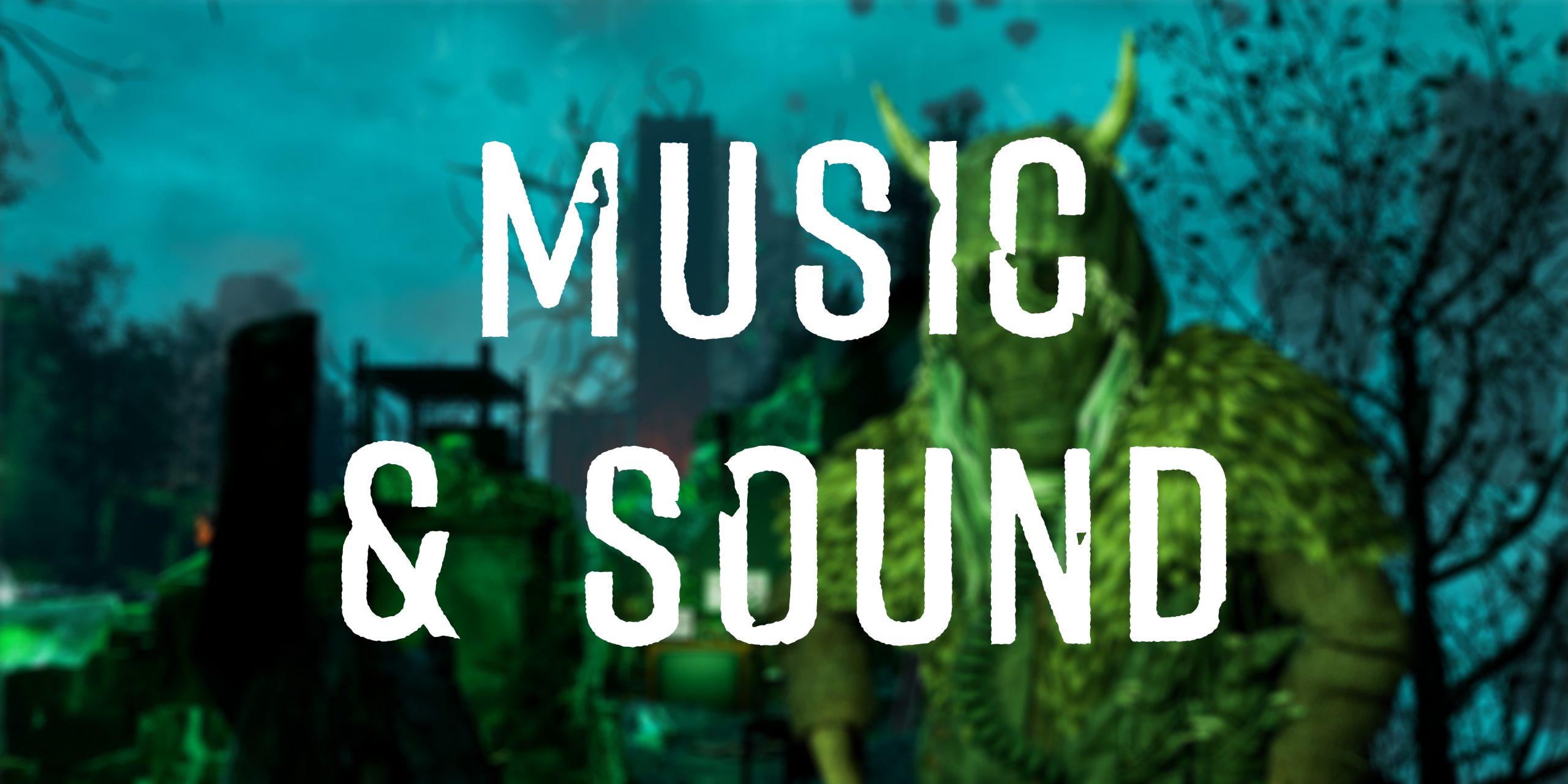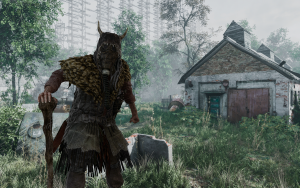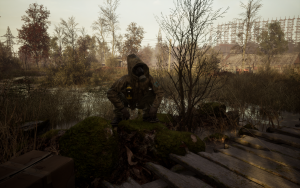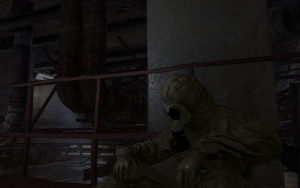A game’s sound design is just as important as any other facet to a video game when it comes to creating a believable world. This includes not only the sound of weapons, footsteps and ambient noise, but also the music and voice acting. Some of these things Chernobylite excels at – others it does not.
The general sound effects seen throughout the game, from the echoes of your footsteps on different floors, to the gun sounds, to the satisfying and visceral crunch when successfully landing a headshot all feel well implemented and realised within the confines of the game. While none of it was especially notable in its execution, it serves to reinforce the success of The Farm 51 in this regard: as the best kind of immersion is when you do not know you are immersed – you simply are.
None of the sound effects are too over the top, and it serves to complement the style of the game, being a slow paced crawl through the abandoned streets and hallways of the Chernobyl exclusion zone. Random and unexplained horror-inspired sounds also serve to further this feeling, with the fleeting laughter of a long-gone child being heard faintly as you walk through a park, or the hallways of an abandoned building being tinged with the pained echos of fallen civilians. These sounds are not too overdone so as to not feel repetitive, meaning that when it does occur, it holds a certain level of weight to it, successfully unnerving – and sometimes surprising – the player.
The music is equally worthy of praise. Composed by Mikołaj Stroiński, known best perhaps as the co-composer for CD Projekt Red’s The Witcher 3: Wild Hunt, the music for Chernobylite is subtle yet highly effective. Using a mixture of acoustic guitar, soft synthesis sounds and violins helps to create an oppressive, suffocating and yet hauntingly beautiful soundtrack – perfectly encapsulating the feeling of the game itself.
Each level features its own ambient music, and though in the moment it may not feel worthy of note, each return to the same location is met with certain feelings and emotions brought out by the familiarity of the music. While there may not be too much variety in its music, each map holds its own bespoke song, adding to the sense of uniqueness. While this does mean that the soundtrack itself may not feel as crafted or scripted as some games which tie the music ever so closely to the actions that a player is conducting with an epic orchestra giving its all, it accurately matches and enhances the overall atmosphere of each map and level.
This is doubly so for the music you hear upon returning to your base. While short in nature, and simple in its execution (being composed primarily of acoustic sounds), each successful mission ends with your return to the base, and you are met with these comforting notes, telling you that you are home, and you are safe. Over the course of the game, your base begins to feel more and more like home (as you adopt more companions and upgrades), and the music serves to reinforce this feeling. While again, holding undertones of depression, the base music is ultimately a warming and homely sound to return to.
Of course, I couldn’t go without mentioning the hard bass music piercing the air as you traverse some levels. Though the first time it may surprise you, you ultimately come to recognise these sounds as belonging to the radio of shop keeper Evgeniy Andrushev. It helps to lighten the mood ever so slightly, as despite everything going on with and around your main character, not all is lost, and some people are even able to have fun, ambitions, and live mostly happily in spite of their situation. The song – titled Tili tili boom Hardbass – is obnoxious, but purposefully so, adding to the charm of Chernobylite’s world, and giving the game that tiny bit of comic relief.
The one element to the game’s sound design that does disappoint is in its voice acting. Now, it is worth noting that the game is available to play in both Russian and English. The game defaults to the Russian voices. I would recommend that any new players keep it at its default. While I do not understand what they are saying (there are subtitles for this), the voices sound authentic enough and fit the tone of the world, adding to the immersion and reality of the world and its inhabitants. I played primarily in English, and this is due to the fact that there was simply a lot more to digest in it. The English voice acting cast is very hit or miss, with some characters doing a fine job of portraying their characters, and others being so odd as to be immersion-breaking.
The biggest offender in this respect is that of the main character, Igor Khymynuk. In the English dub, Igor was given a British accent. While this makes some degree of sense story-wise, it stands out like a sore thumb, and with Igor being the main protagonist, he of course has the most to say. Yes, Igor is a scientist who spent a decent chunk of time in England, however, when talking to any other character, it really does beg the question as to why this creative decision was made – especially as his being English ultimately serves no purpose in the story.
It is possible that this fact could have been overlooked – especially if the voice acting itself was good – however it unfortunately is not, with Igor’s voice actor failing to capture the emotions required for the character during key moments, which in many ways undermines many of the most poignant scenes. Likewise, the voice actors for the generic NAR soldiers which you will encounter throughout the world are equally as immersion breaking. This however feels like it may fall onto the fault of the dialogue itself, and not just its execution.
These two sets of characters aside, the rest of the English voice cast is surprisingly great. Each of your companions – who you communicate with often – offer their own style of talking which reflects the personalities attributed to their character. Furthermore, emotions, enunciation and more are all very well done, with characters such as Tarakan and Olga being particular highlights. This also extends to the less important NPCs who Igor will engage with. The shopkeepers which Igor encounters throughout the world also have their own distinct personalities, captured well by the voice actors, and offering just enough abnormality so as to make them memorable. Of course, I must mention Tatyana, whose ever present and haunting voice strikes a balance between endearing and creepy, leaving you on edge and wondering, every time she offers advice or caution.
While most of the English voice cast is very well done, giving each character their own unique voice and personality, it is ultimately undone by the odd performance of the game’s main character, rendering the whole experience immersion-breaking. There was a reason as to why the game defaults to Russian – and it now makes sense.
 KitGuru KitGuru.net – Tech News | Hardware News | Hardware Reviews | IOS | Mobile | Gaming | Graphics Cards
KitGuru KitGuru.net – Tech News | Hardware News | Hardware Reviews | IOS | Mobile | Gaming | Graphics Cards




